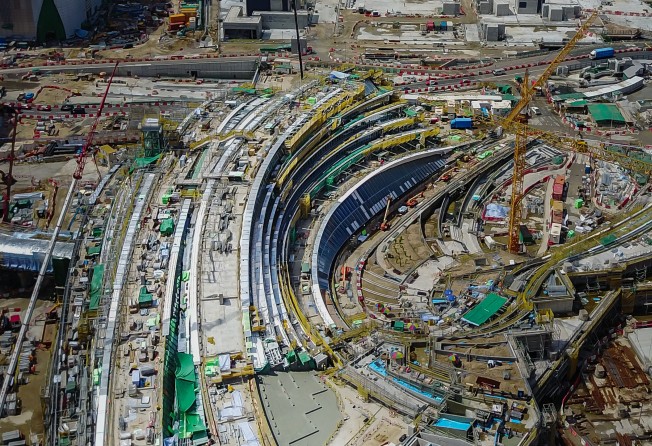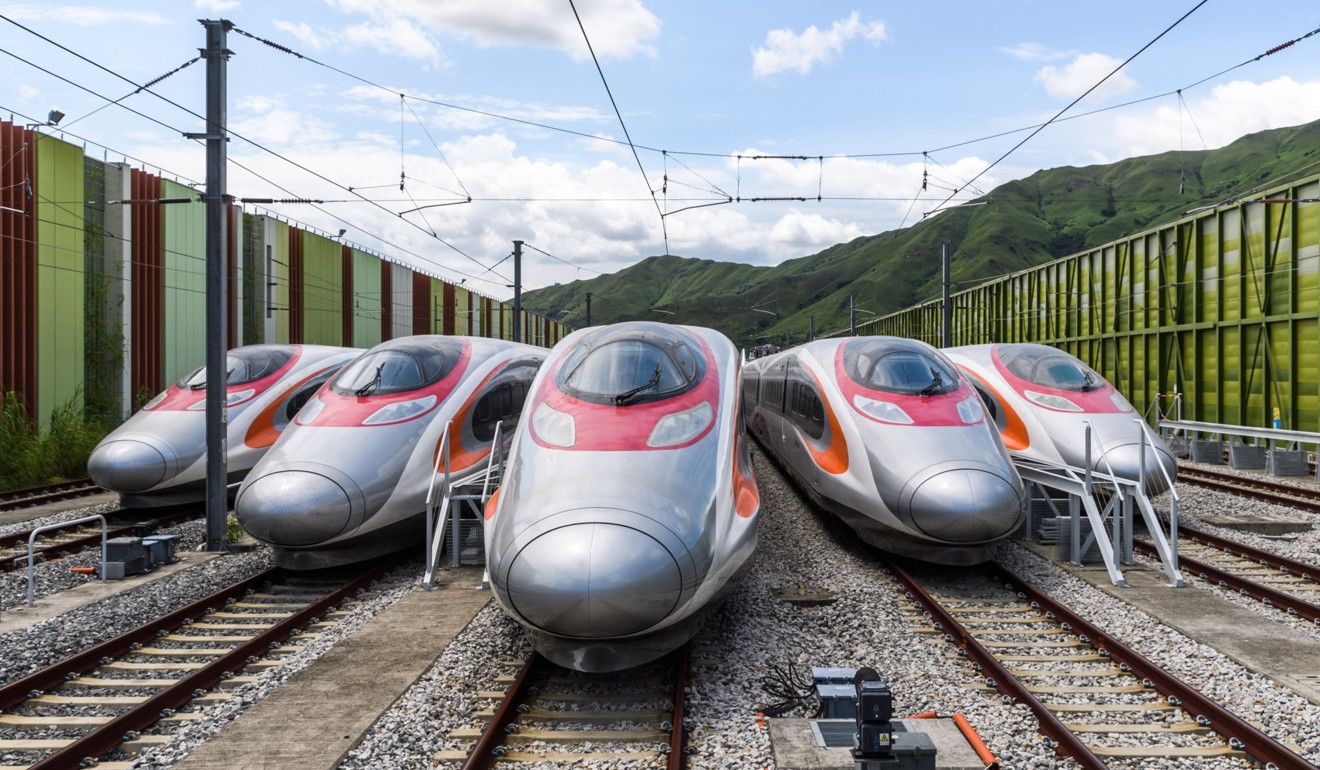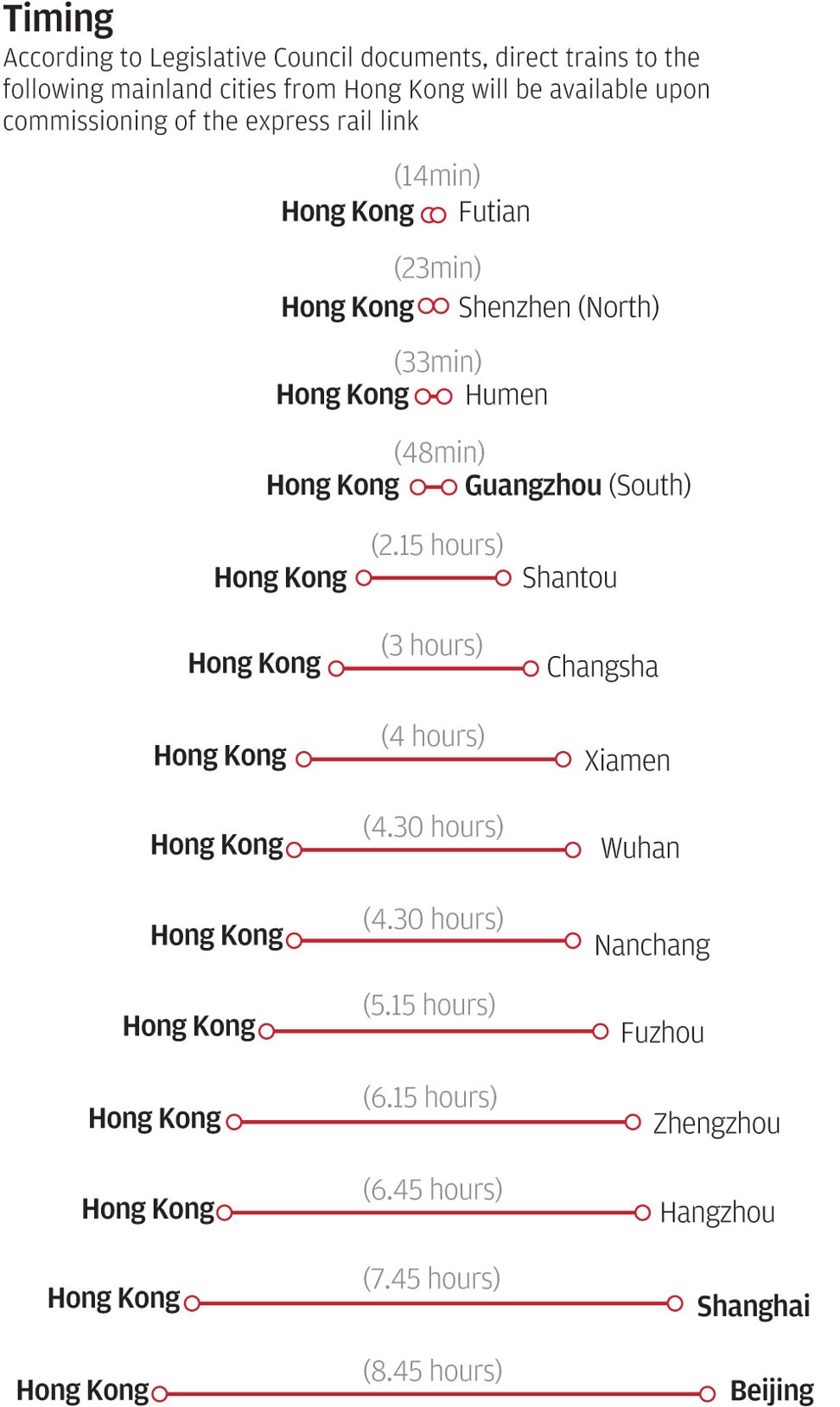Is price to pay for joint checkpoint at West Kowloon rail terminus in Hong Kong too high?
Entrepreneurs and tourism representatives highlight the convenience of the arrangement, while critics fear it will erode residents’ rights

Hong Kong’s business and tourism sectors says the joint customs arrangement at the cross-border high speed rail terminus in West Kowloon will generate many economic benefits, but critics question whether the price to pay is too large.
Business representatives said housing the Hong Kong and mainland Chinese checkpoints under one roof meant convenience for travellers between Hong Kong and Guangzhou. They also said it would bring stronger links with the rest of the mainland’s high-speed rail network.
However, some legal experts said the move set a very bad precedent, which put Hongkongers’ rights and freedoms at risk.
Opposition lawmakers said the arrangement would contravene Article 18 of Hong Kong’s mini-constitution, the Basic Law, which states mainland laws must not be enforced in Hong Kong.
“I think these [lawmakers] only consider the political issue ... and just want to make some noise,” Chinese Manufacturers’ Association president Eddy Li Sau-hung said.

The arrangement at the rail terminus allows mainland authorities to conduct immigration and customs clearance within a designated 105,000 square metre area of the terminus, which will be leased to the mainland.
Mainland criminal and civil law will apply there.
Li cited examples of joint checkpoint arrangements already in existence around the world, such as between Canada and the US and Britain and France.
“We also have this experience at the Shenzhen Bay border, so it is logical that if we pass through one area [instead of two] it is so convenient,” he said, referring to the joint checkpoint at Shenzhen Bay.
Hong Kong General Chamber of Commerce chairman Stephen Ng Tin-hoi urged the co-location agreement to be implemented before the rail link’s opening next year, otherwise “we definitely will miss the economic growth train”.
“Opponents will always find a hundred technical reasons to tell us why something cannot be done,” Ng added.
Federation of Hong Kong Industries deputy chairman Jimmy Kwok Chun-wah said that with dwindling job opportunities for Hongkongers in the city, the rail link would allow people to find new opportunities across the border.
Fast and convenient immigration and customs procedures would be crucial, he added.
Watch: All you need to know about high-speed rail link
Jason Wong Chun-tat, chairman of the Travel Industry Council, said convenience brought by the express rail link should not be diminished by the requirement to follow mainland laws.
“The public should understand what the gains and losses are if the arrangement is legal and benefits society and the travel industry,” he said.
Tourism sector legislator Yiu Si-wing believed Hong Kong’s sagging tourism would receive a much-needed boost from customs clearance convenience and the potential of more travellers arriving on high-speed trains from mainland cities within four hours of Hong Kong.
Hong Thai Travel Services said they would organise tour groups to the mainland using the express link after ticket prices were unveiled.
“At present, 10 to 20 per cent of our groups to the mainland travel by high-speed railway, which saves time and is more flexible compared with taking flights,” a spokeswoman said.
“We believe [the link and terminus] will bring more convenience to travellers,” she said, suggesting future tours could be arranged to Shanghai and Beijing using the high-speed system.

However, Dr Cheung Chor-yung, from City University’s college of liberal arts and social sciences, said the co-location arrangement would set a “very dangerous” precedent that could “shake the civil rights and freedoms of Hong Kong people as protected under the Basic Law”.
“The price is too huge if we have to give up some of the our guaranteed protection to trade for convenience in taking the train,” Cheung said.
“The government has so far seemed to have failed to give convincing arguments regarding the legal basis of the arrangement for giving up an area within Hong Kong to the central government.
“If the National People’s Congress Standing Committee can make it possible by simply making a decision, would it be possible that one day Beijing can make a decision to designate the area outside its liaison office as a mainland area where national laws apply? If so, we cannot stage protests anymore outside the liaison office,” he said.
Additional reporting by Ng Kang-chung
